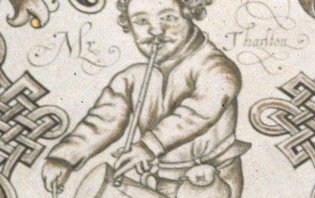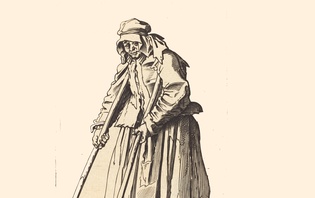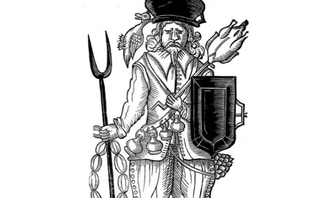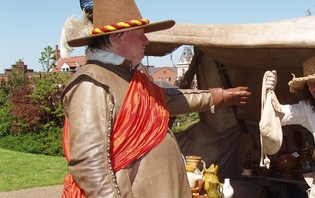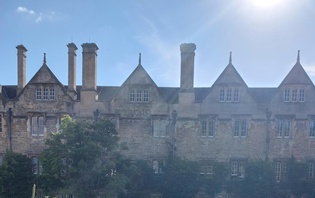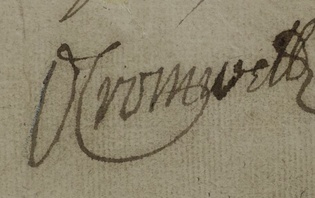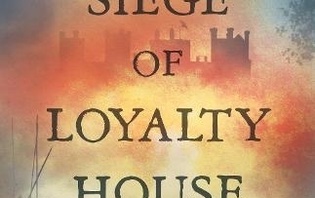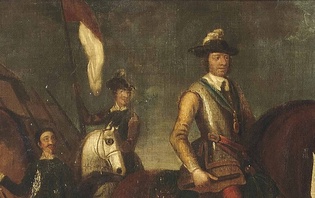The Dogged Determination of William Gray of Braintree, Essex
Among other things, the material gathered by our project will give historians valuable insights into the ways in which ordinary people negotiated with their rulers. We’ve been struck by the clever strategies adopted by many petitioners, their assertiveness in the face of authority, and their dogged determination to obtain justice. Here, David Appleby takes up the story of a serial petitioner from Essex – a maimed soldier who refused to be silenced, and eventually got his reward.
Before the outbreak of civil war, William Gray was a family man with a good trade and decent prospects. He was a woolcomber, a skilled occupation whose practitioners tended to be members of the respectable ‘middling sort’. Gray’s home town of Braintree, whose cloth was exported all over Europe, was a hotbed of puritanism. When war became inevitable, thousands of Essex men came forward to volunteer for Parliament’s armies. It is evident that Gray was among them. He served as a private soldier in the earl of Essex’s army, fought at the siege of Reading in April 1643, and in the subsequent campaign. His company commander, William Jarman, attested that Gray was an orderly and sober man. The Essex justices would later record that he was ‘many years’ in the army. The fact that Gray had acquired extensive military experience and was of good character was clearly influential in his appointment as a sergeant in Colonel Thomas Cooke’s regiment during the Second Civil War of 1648. Cooke had hastily assembled his auxiliaries as the royalist insurrection in Kent spilled over into Essex. Gray was posted to the colonel’s own company, perhaps on the recommendation of William Jarman, who had been appointed major in the same unit. The regiment saw hard service at the siege of Colchester in 1648, and later at the battle of Worcester in the Third Civil War of 1650-1. It was during one of these campaigns that Gray was so badly wounded as to prevent him from resuming his peacetime occupation. Far from being a man with prospects, he and his family now faced a lifetime of poverty.
Gray does not appear in the Essex quarter sessions records until 1657. Like so many maimed soldiers and war widows, he may initially have tried to struggle on without charity. He obtained a certificate from William Jarman in January 1657, and armed with this testament of his loyal service to Parliament, petitioned the Essex justices for a pension. He received only a one-off gratuity of 40 shillings. Undeterred – or desperate – Gray submitted another petition for the April quarter sessions. The justices were even less sympathetic; nevertheless, they conceded that he had received ‘some wounds’, and ‘to prevent further trouble with him’, ordered the Treasurer for Maimed Soldiers to pay him a gratuity of 20 shillings. The former sergeant immediately tried a different tactic, obtaining a medical report from a barber surgeon named Thomas Cosin. Cosin’s detailed diagnosis illustrated the extent of Gray’s debilitating injuries, particularly emphasising that his leg had ‘been broken in many pieces, which hath occasioned a great imbecility’. Nevertheless, at the Midsummer sessions of July 1657, the justices were clearly irritated that Gray had had the temerity to present his case to them yet again. They grudgingly ordered the Treasurer for the East Division to pay him a final gratuity of 20 shillings, adding that ‘[we] do require the said Gray never hereafter to trouble the Sessions for any further relief’. Such official rebukes – which can be seen in the records of many counties – deterred many maimed soldiers and war widows from continuing to press their claim. However, William Gray was made of sterner stuff. He boldly appeared at the next quarter sessions in October 1657, and petitioned yet again. The exasperated justices accepted defeat and ordered that Gray henceforth receive a pension of 40 shillings per year. This was not much, given that he had to support a whole family, but it does at least prove that his persistence was ultimately effective.

